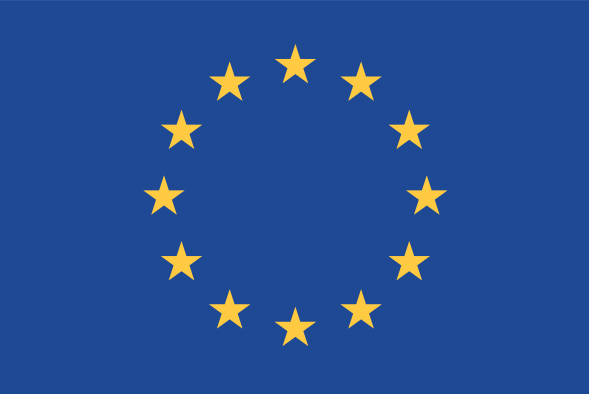RESCUER is an EU Horizon 2020 project, coordinated by the University of Oslo, Norway, that aims to predict treatment response and test new combinational therapies for complex breast cancer subtypes
The RESCUER consortium consists of 15 institutions in Europe and the US. RESCUER expects to bring new concepts of combinatorial therapies for complex breast cancer subtypes tailored to the needs of individuals or stratified patient groups.
The possibility to integrate data from many trials on different drug combinations, the access to large drug-resistance datasets and the application of mathematical models, network analysis and test results in vivo, in vitro and in silico, allow us to assess drug response for any possible drug combinations.
The mathematical models we propose here will inform on the most effective personalised combinatorial treatment and predict patients’ responses and side effects, impacting treatment decisions and patients’ quality of life.
Integrating data from different clinical trials required data cleaning, harmonisation and organisation into one sharable database, says Hanna Hübner (Universitätsklinikum Erlangen), who is the leader of
this work.
Further, the molecular phenotype of each tumour is generated by in-depth mass spectrometry (MS) proteomics data in addition to genomics, transcriptomics and clinical follow-up data. These data are used to develop appropriate mathematical models and numerical simulation codes necessary to run personalised computer simulations of drug response in different combinations and doses.
The plan is to validate our existing models and simulation codes and to start the development and testing of completely new models for new drugs and patients, says Alvaro Köhn-Luque (University of Oslo), leader of the modelling work.
In addition, statistical models for synergy prediction from in vitro drug combination experiments and corresponding software will be provided. At the same time, cellular heterogeneity of the breast tumour microenvironment is generated at single-cell resolution to see to what extent this heterogeneity underlies treatment resistance in clinical trials and deep learning models for segmentation and localisation of molecular traits are developed.
Improved efficacy and take-up in the clinical setting in comparison to established therapeutic interventions
Effectiveness of novel treatments will be measured in our large-scale drug screening, where we will evaluate the response rate of promising combinatorial treatments for different breast cancer subtypes and patient subgroups.
We are also aiming to observe clinically meaningful responses on a dish by adopting the Patient Derived Explant Culture (PDEC) protocol for utilisation of needle biopsies and remote sampling. Trials have shown that molecular profiling could change clinical practice by substantially de-escalating the use of adjuvant chemotherapy and sparing many patients an aggressive treatment they will not benefit from. Identifying those patients prior to treatment is a major goal. We expect our project to bring improved efficacy and take-up in the clinical setting in comparison to established therapeutic interventions.
Enable the development of personalised medicine
RESCUER contributes to personalised and precision medicine in two ways, says Vessela Kristensen from UiO, coordinator of the project. On one hand, the project will bring new knowledge on breast cancer heterogeneity, paving the way for new treatment approaches and for accurate patient stratification, treatment response prediction and, potentially, more precise screening and outcome prognostication.
On the other hand, the large-scale drug screening performed in our project will provide evidence of the effectiveness of specific combinatorial treatments for well-defined breast cancer patient subgroups, thus enabling the development of personalised medicine.
Increase research and innovation opportunities in this industry-intensive field, particularly for SMEs
This project will generate at least three important innovation possibilities Says professor Arnoldo Frigessi from UiO:
- An algorithm for in silico therapy simulation as a clinical decision support system – UiO’s TTO inven2 innovation company is interested in exploring commercialisation opportunities either with existing SMEs or by creating a new SME.
- An algorithm for synergy prediction, which is very interesting for big pharma and for biotech industries as it reduces the experiments dramatically, increases their power and reduces development costs of new drugs.
- A protocol for the approval of a clinical therapy recommender system (and not the approval of a new drug) by national agencies for the evaluation of drugs and the European Medicines Agency (EMA) – an important professional instrument for clinical contract research SMEs. In this sense, RESCUER also addresses the EU priority for “innovative health and care industry”.
Big data-driven analytics as fundamental for personalised medicine and new design of clinical trials
Another development field is the utilisation of big data for the conduction of clinical trials. Here, RESCUER contributes to the effective translation of new data-driven approaches for knowledge generation as compared with expensive evidence-based studies by demonstrating how well-organised in silico validations supported by scientific approaches can effectively produce scientifically validated knowledge.
Moving towards the effective integration of personalised medicine approaches into healthcare services and systems to the benefit of patients and citizens
Trials have shown that molecular profiling could change clinical practice by substantially de-escalating the use of adjuvant chemotherapy and sparing many patients an aggressive treatment they will not benefit from. Identifying those patients prior to treatment is a major goal that resonates well with the patient organisations. The computer simulations of different treatment doses and combinations developed and validated by RESCUER for those groups of patients with their respective tumour characteristics may thus improve their response and prognosis.
“Reaching healthcare services and systems, as well as initiating new clinical trials based on this research and are in contact with healthcare providers and services,” says Dr Peter Fasching, a pioneer of this work, together with Universitätsklinikum Erlangen in Germany.


This work is licensed under Creative Commons Attribution-NonCommercial-NoDerivatives 4.0 International.


